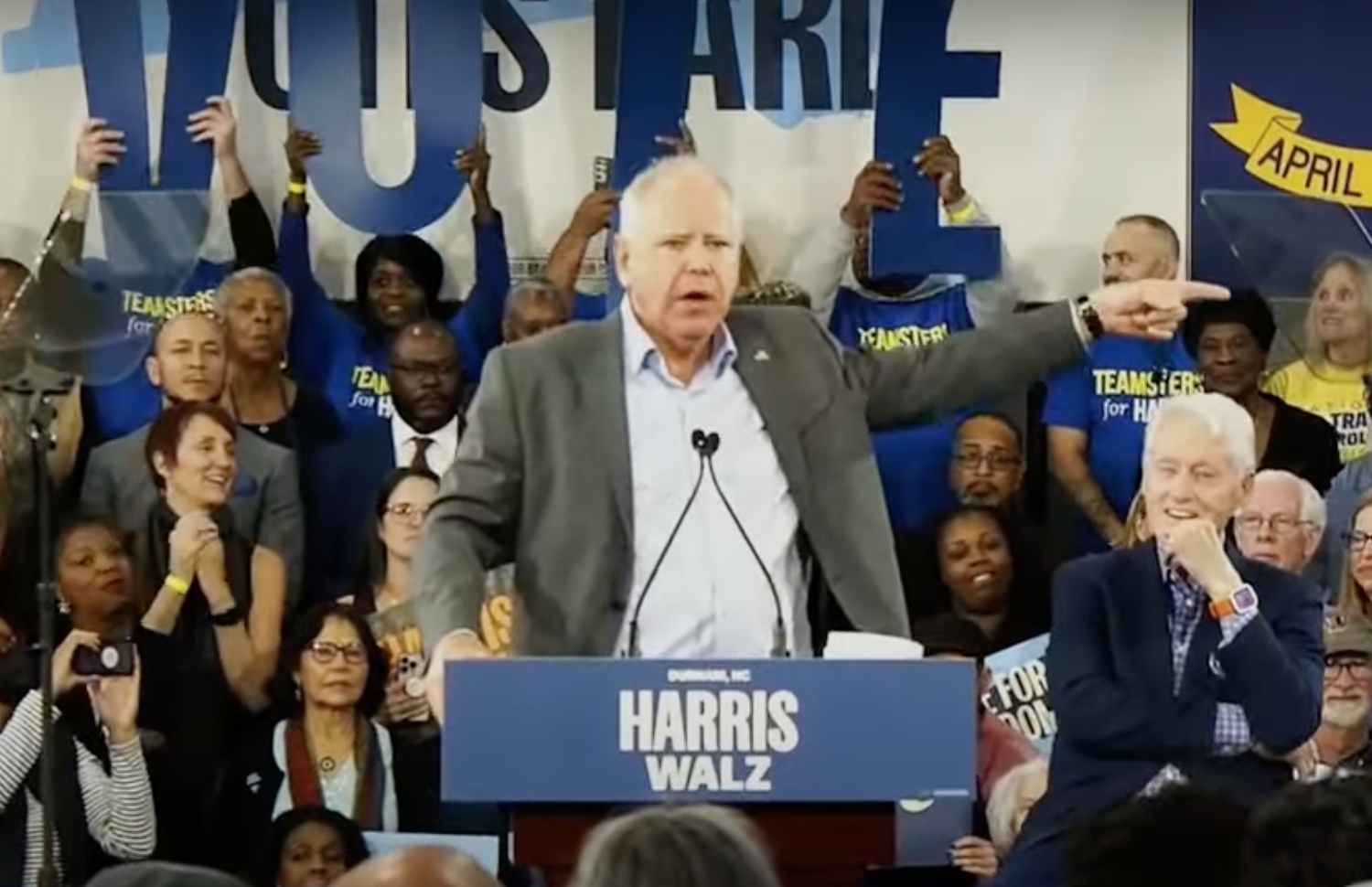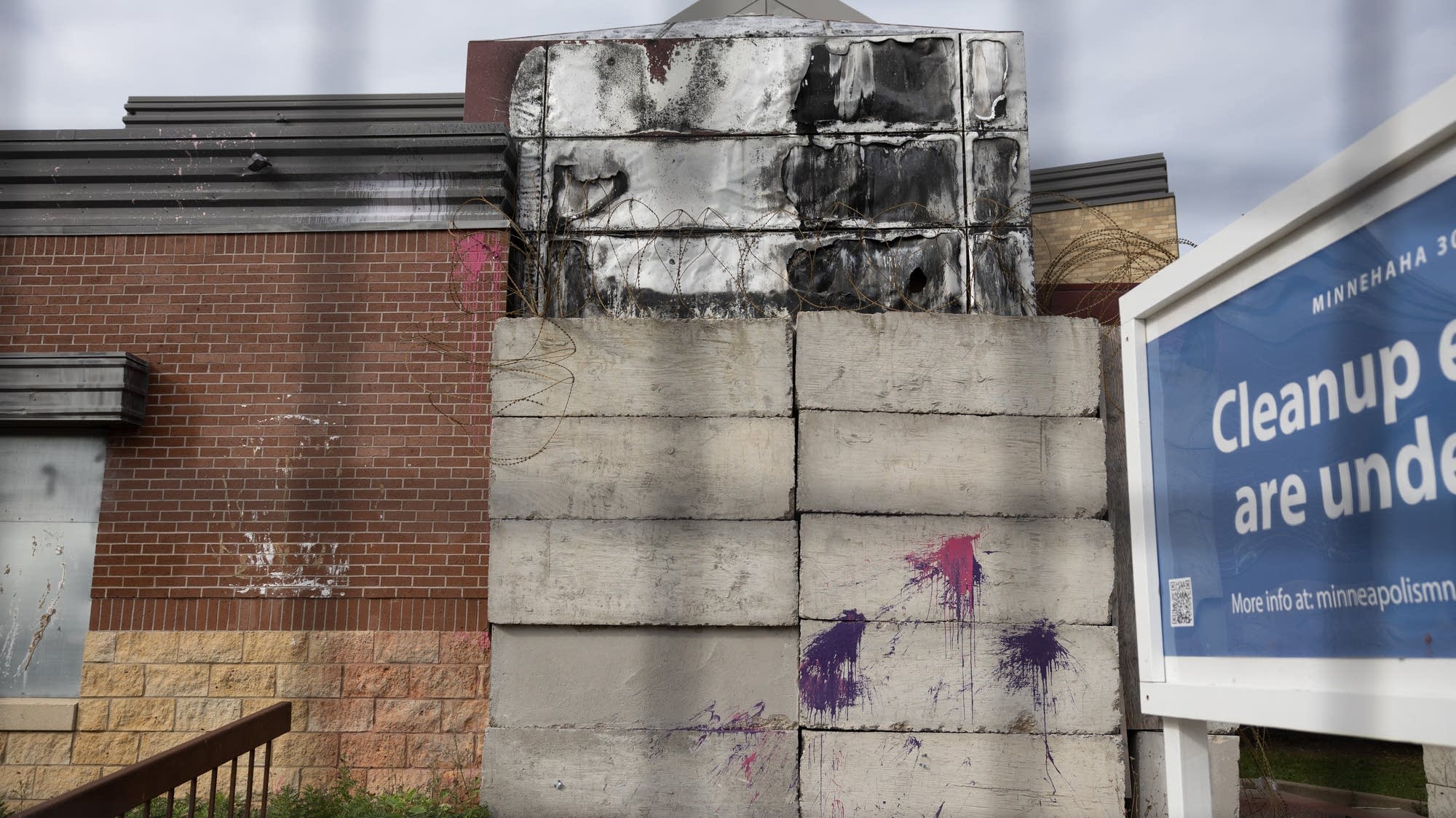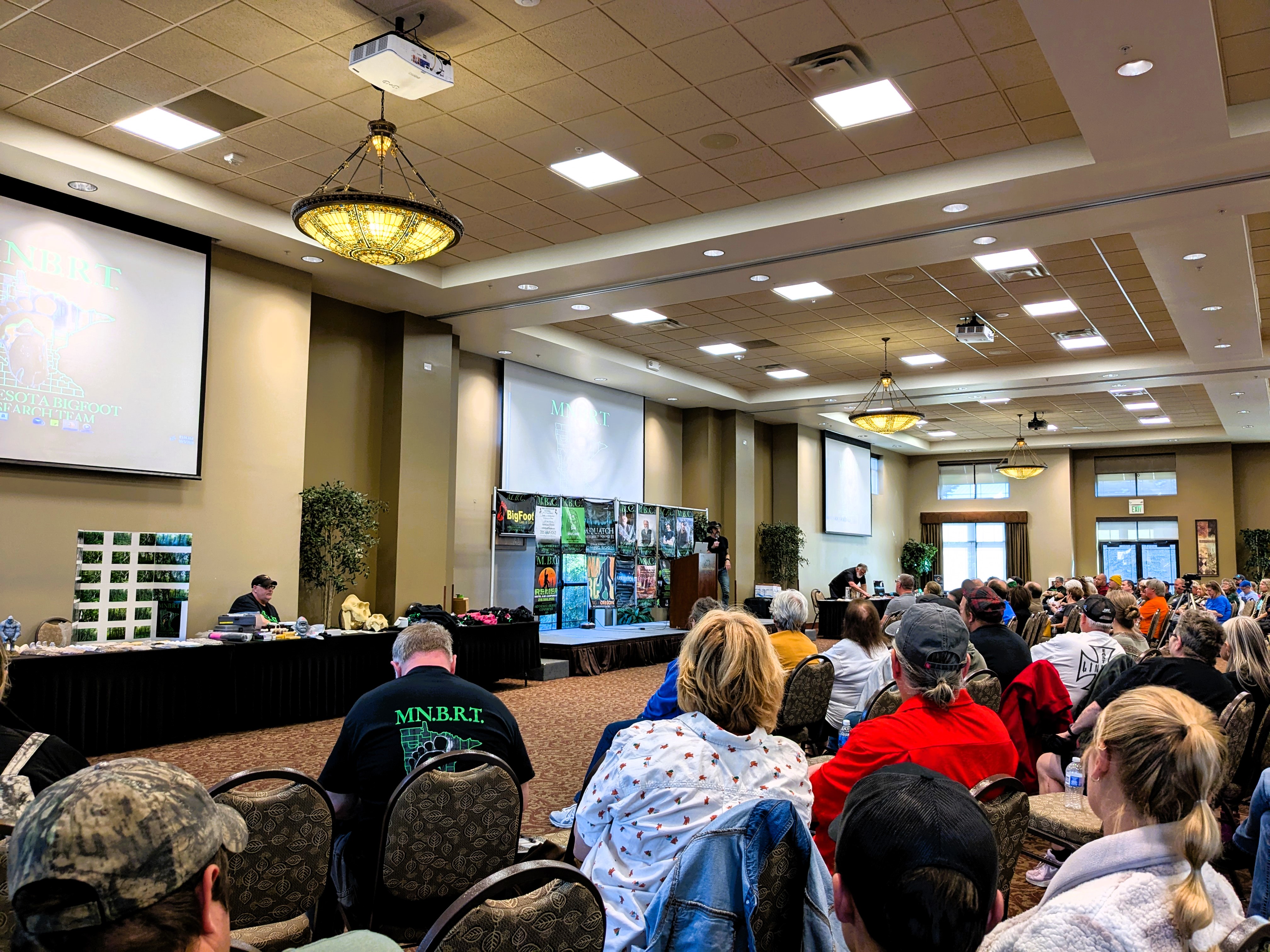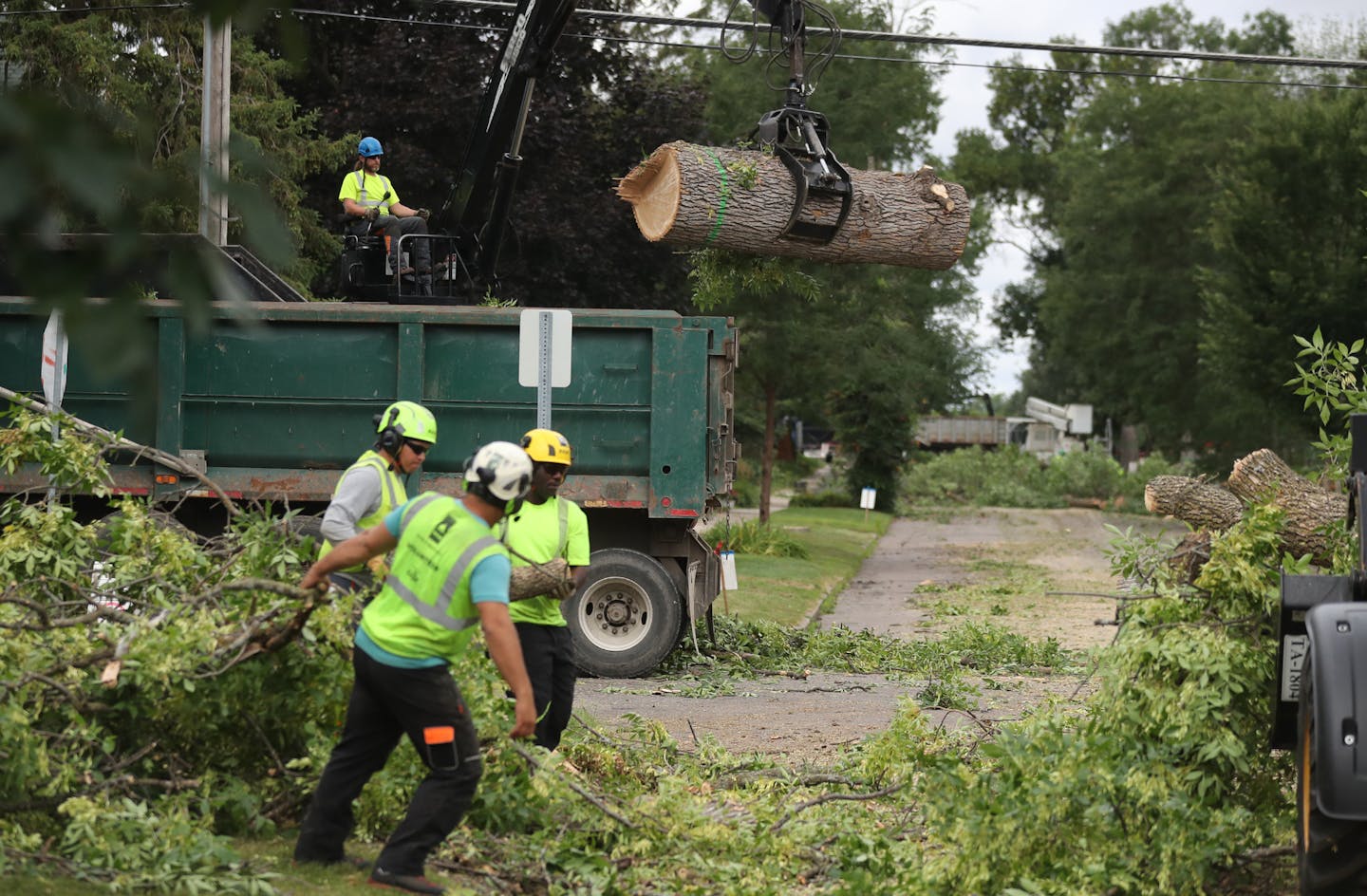Minneapolis - St. Paul Metro
> The American Civil Liberties Union of Minnesota is providing legal representation to Jessica Beske, a Fargo woman facing decades in prison and a potential $1 million fine over bong water allegedly found in her possession in a case that has raised questions about uneven enforcement of the state’s drug laws. > > “We’re pretty broadly interested in making sure Minnesotans aren’t criminalized for things like addiction,” said attorney Alicia Granse, who is working on the case. “Do we want to be spending so much of our resources on bong water?” > > The ACLU’s involvement speaks to the unusual nature of the case itself, as well as its broader implications for criminal justice reform efforts in Minnesota. > > Beske was pulled over in May in Polk County in the northwest part of the state. Upon searching her car, sheriff’s deputies reported they found drug paraphernalia and methamphetamine residue, as well as a glass bong containing 8 ounces of water. > > Because of a longstanding loophole in state law, the county attorney’s office was able to treat the bong water as if it were 8 ounces of pure methamphetamine, warranting a first-degree drug charge carrying up to 30 years in prison. > > The materials allegedly found in her car would not otherwise have resulted in any criminal charges thanks to a 2023 bill decriminalizing drug paraphernalia containing residue. > > Bong water prosecutions are highly unusual, and Beske’s story garnered widespread media attention after the Reformer first reported on her case. The Office of Polk County Attorney has a reputation for zealous prosecution of drug cases. A 2014 Star Tribune story revealed it was one of a few in the state charging people for violating an archaic law requiring them to pay taxes on illicit drugs. > > “They’re going hard up there,” Granse said. She questions whether charging people for bong water or marijuana tax stamp violations is actually contributing to public safety. “I don’t know if that’s what we really want to be spending our money on, or our time.” > > Scott Buhler, the assistant county attorney working on the case, previously told the Reformer that his office “simply enforces the laws of the state as written.” In reality, prosecutors have a great deal of discretion to decide which offenders to charge and which violations to prosecute. > > Granse said the case could end up being a lengthy one: “It sounds like this prosecutor is not willing to give up, but neither am I.”
 racketmn.com
racketmn.com
> **Walz Watch: Body Language and Deep Fake Edition** > > New York Magazine is taking a closer look at how and why Tim Walz’s body language may play a key role in connecting with people—even from a distance. According to features writer Kerry Howley, he knows how to work a finger gun (“at a middle distance, he will deploy two finger guns; at a shorter distance, one”), he knows when and how to point like a pro (“‘I love you,’ someone shouts from the crowd. Walz points straight at him. ‘You love America!’”), and he is definitely the guy you want on our charades team (“It is difficult to make policy physical, but Walz could mime the agenda if pressed. He has a lexicon of moves.”). The story also covers Walz lore from his teaching days and time repping rural Minnesota in Congress, but it’s Howley’s understanding of political theater and staged communication that make this a fun read. > > (Folks will now be able to analyze Walz’s physical mastery more regularly leading up to the election, as NBC News reports that Walz has been released from his “bubble,” with plans to stop by The View and The Daily Show in the coming weeks.) > > Meanwhile, on the dark side of the web, aka Twitter/X, Qanon accounts have been circulating a deep fake video of a former student accusing the VP candidate of sexual assault. It’s not real; it’s AI from a dude, DotNetYoutube, who Washington Post reporter Will Sommer says is “an up-and-coming new player in the ‘making things up’ corner of online Trumpworld,” noting that the “appearance of a cursor in a witness's key emails” suggests that “DocNetYoutube wrote it himself.” > > **Red Guy Living in a Sea of Blue Is More Than He Seems** > > Shawn Holster is just a Republican living in south Minneapolis, and that’s hard, you know? In this (kinda, supposed to feel-good?) story from Winter Keefer at MinnPost, Holster says he wants folks to know that he gets along with his liberal neighbor, hasn’t experienced any property damage since decorating his lawn (“I’ve had a Trump sign in my front yard… and I haven’t had a single brick through my window”), and he, like many Republicans, is “just like you. We have the same concerns.” > > But what the story only mentions briefly is that Holster isn’t just some friendly guy with GOP signage on his lawn—he’s president and chair of the Minneapolis Republican Party. One of his first moves as leader in 2023 was to host a "Rock’n Barbecue" party in the former Clubhouse Jager space. The North Loop spot, owned by Julius DeRoma, closed after it was discovered that he had donated to ex-Ku Klux Klan grand wizard (and surprise Jill Stein supporter) David Duke's 2016 U.S. Senate campaign. Holster told Racket at the time that he thought DeRoma’s support of Duke “was a dumb idea,” but also assured us that his org’s "calendar doesn't include doing Klan shit anytime soon." > > Holster is also a former political candidate; in 2022 he ran for District 63’s Minnesota Senate seat, ultimately losing by 71 points to 25-year-old DFL rival Zaynab Mohamed. A quick perusal of his Twitter account suggests he’s anti-trans, thinks the Strib is run by communists, and is a voting truther—yup, sounds like some bipartisan ”same concerns” to me! > > **A Sweet Labor Story About Sugar Beet Farmers** > > In 1973, the Red River Valley Sugarbeet Growers Association purchased the American Crystal Sugar Co., making them not only the biggest sugar beet producer in the country but also the first sugar beet agricultural cooperative. In this labor story from Workday Magazine, Amie Stager checks in with Mark Froemke, president of the West Minnesota Area Labor Council/Red River Valley, AFL-CIO, who has been working in the sugar beet industry since the 1970s. “I never lost that, the thrill watching them harvest sugar beets,” he confesses. Froemke also reflects on the ACS’s 22-month worker lockout from 2011 to 2013, possible changes in child labor laws in the meatpacking industry, and the challenges of advocating for workers’ rights in a red region. > > **37 Years Ago Today, the Twins Opened Game 1 of the World Series** > > This World Series opening segment has it all: an aerial shot of the Hubert H. Humphrey Metrodome; liberal use of the Field of Dreams soundtrack; Al Michaels describing the World Series as a “thoroughly movable feast, and your town never knows it's coming your way until days before.” I wasn’t even living here when this happened, yet I feel nostalgia watching it. > > > On this day in 1987 Al Michaels opened Game 1 of the World Series in dramatic fashion and it was glorious… pic.twitter.com/nvPMxz4oH0 > > > > — Jeff (@MNTwinsZealot) October 17, 2024
 www.startribune.com
www.startribune.com
https://archive.is/doOLq > A high-ranking officer with the Minneapolis Police Department has sued media figure Liz Collin and Alpha News for defamation over claims made in the film “The Fall of Minneapolis” and a similarly themed book. > > In the lawsuit filed Tuesday in Hennepin County District Court, Katie Blackwell, the assistant chief of operations for MPD, argues statements Collin made in her film and book about Blackwell’s testimony during the state and federal trials in the murder of George Floyd are lies. > > Those lies “have clouded Blackwell’s career,” the lawsuit alleges.
> Popular apps that provide cash advances for working people are trapping Minnesotans in a cycle of borrowing and repayment and increasing the rate of bank overdraft fees, according to an analysis by the Center for Responsible Lending. > > The companies say they allow workers to borrow money they’ve earned but haven’t received yet, arguing that their cash advances don’t count as loans and shouldn’t be regulated as such. Many apps automatically deduct the money owed from the borrower’s bank account on payday — regardless of whether or not the borrower has enough cash on hand to make the payment, which has led to the increase in overdraft fees. > > In Minnesota, two-thirds of users of the apps — known in the industry as “earned wage access” apps — experienced increased overdraft fees after borrowing money. The average user overdrafted their bank account more than 9 times in the three months after their initial payout, according to the analysis by the Center for Responsible Lending. > > Rather than charging exorbitant interest rates like payday lenders, the apps make money off of instant transfer fees and “tips.” > > The Center for Responsible Lending advocates a federal crackdown on payday lenders and similar businesses, including earned wage access apps. > > Minnesota clamped down on payday lenders in the 2023 legislative session, capping interest rates at 33% for loans between $350 and $1,000, and even lower for smaller loans. Minnesotans can still access payday loans with higher-than-allowed interest rates, however, due to a federal law that allows banks to adhere to the laws in the state where they are based, even if they operate in states with tighter restrictions. That means Minnesotans can wind up paying higher interest rates if they wind up with an out-of-state payday lender. > > Consumer protection advocates pushed for a bill last session that would have required all lenders operating in Minnesota to adhere to Minnesota regulations; that bill did not pass. > > Earned wage access apps function differently from payday loans because they promise not to report outstanding balances to credit bureaus and collections agencies, and they simply discontinue service if a borrower is unable to pay.
> *Welcome to The Topline, a weekly roundup of the big numbers driving the Minnesota news cycle, as well as the smaller ones that you might have missed. This week: Asset forfeiture; overdose deaths; tax receipts; and Minnesota’s most closely divided city.* > > **Asset forfeitures continue to fall following reforms** > > The total value of assets seized by Minnesota police agencies fell to $5.3 million in 2023, a decline of 27% from the prior year, according to the latest forfeiture report from the Office of State Auditor Julie Blaha. > > Forfeiture laws allow police to take and keep cash, vehicles and other property from suspected criminals. They can do so without obtaining a conviction or an arrest, and in many cases are able to keep the property after the person has been cleared of wrongdoing. > > The potential for abuse in forfeiture cases led the Minnesota Legislature to limit the circumstances in which property can be seized in 2021. The auditor credits that reform with the declines seen last year. > > “These changes are a result of civil liberty advocates, law enforcement, and legislators coming together to find common ground,” said Senate Minority Leader Mark Johnson, R.-East Grand Forks, a sponsor of the bill. “While these changes won’t impact most Minnesotans, those who are impacted can trust the process to be fairer and more balanced.” > > Another promising sign for reformers is that the share of forfeitures valued at less than $1,000 continues to fall, indicating that police are using it more as a tool to target major suspected criminals, rather than possible street-level offenders. > > DUI and drug offenses account for the vast majority of forfeitures in Minnesota. > > **Minnesota drug overdoses fall for first time since 2018** > > Preliminary data from the Department of Health shows that the number of fatal drug overdoses fell from 1,384 in 2022 to 1,274 in 2023, a decline of about 8%. > > Greater Minnesota saw a 21% decrease in overdose deaths, while in the Twin Cities the decline was a far more modest 1%. The figures mirror national trends. > > “We have seen a decline in opioid deaths, alongside an increase in nonfatal overdoses, in part due to greater naloxone availability,” said Commissioner of Health Dr. Brooke Cunningham. “We know the work is not done, and we cannot rest. Every overdose is one too many.” > > Opioids account for the entirety of the 2023 decline, as they make up about three quarters of all overdose deaths. Nonfatal opioid overdoses, on the other hand, remained flat, suggesting that the decline in deaths owes less to changes in use patterns and more to the availability of naloxone. > > Fatal overdoses from methamphetamine and cocaine, on the other hand, continued to rise in 2023, underscoring an area of concern for regulators and policymakers. > > Deaths involving benzodiazepines, a category of depressant drugs, fell sharply but only make up about one-tenth of overdoses. > > The report also notes a sharp increase in hospitalizations for cannabis poisoning, due in large part to the legalization of marijuana for personal use. But unlike the other drugs mentioned, cannabis virtually never causes fatal overdoses on its own. > > **Tax revenues were half a billion higher than expected last fiscal year** > > The latest from Minnesota Management and Budget continues to show stronger-than-expected tax receipts, with total fiscal year 2024 revenues coming in at $494 million, or 1.7%, more than expected. > > So far, fiscal year 2025’s numbers are coming in even higher than that, beating expectations by more than 3%. > > It’s enough to make you wonder whether all the dire talk about “structural imbalances” earlier this year was overblown. Maybe MMB needs to change how it does its forecasts? > > **Minnesota’s most politically-divided city** > > It’s Mountain Iron in the northeast, according to the Star Tribune. In 2020 Joe Biden got 881 votes while Donald Trump got 876, for a margin of just two-tenths of 1% . > > Some sparsely-populated hamlets and townships were even closer, the Star Tribune explains, but among cities with at least 250 people, none were closer than Mountain Iron. While it used to be a DFL stronghold, the city has followed the rest of the Iron Range in a shift toward the GOP in recent years. > > As recently as 2012, Barack Obama won the city by a nearly 2-to-1 margin.
 www.startribune.com
www.startribune.com
https://archive.is/J5YK7
 unicornriot.ninja
unicornriot.ninja
cross-posted from: https://lemmy.dbzer0.com/post/29453814 > We got in touch with someone who infiltrated this group for around two years; they gave us a full explanation of why they spent so long trying to get into the group’s leadership circles, which span many states. ‘The infiltrator’ wrote, “I spent two years infiltrating right-wing terrorist groups. I can say firsthand that voters are at risk on Election Day.” > > More in article. The article links to this article from 2018, about some of their activity in the Twin Cities: https://unicornriot.ninja/2018/police-improperly-released-armed-men-who-antagonized-philando-castile-protest/

Wasn't as strong as earlier this year. Had to drive out of the cities a ways, and only really saw white with the naked eye. Got some color with my phone though
 www.mprnews.org
www.mprnews.org
Things to check out this weekend and Monday in celebration of Indigenous People's Day
> Gov. Tim Walz said during a recent “60 Minutes” interview that “We have a paid family and medical leave program that was promoted by the business community.” > > Not if you consider the “business community” to comprise the Chamber of Commerce, the Minnesota Business Partnership and the National Federation of Independent Business, which all opposed the plan. > > There was a lot of tsk-tsking on the internet about this, given Walz’s lengthening list of embellishments. > > But why is Walz fighting on this terrain in the first place? It’s like he’s internalized the ethos of Reaganomics and Calvin Coolidge’s inanity, “The business of America is business.” > > Businesses are primarily concerned with maximizing shareholder value, e.g., making money. > > Here’s what else the American business lobby has opposed over the years: child labor laws; the minimum wage; overtime; the ban on leaded gasoline; airbags and seatbelts; the Americans with Disabilities Act; and, of course, unions. > > Government, by contrast, is concerned with protecting the health and safety, welfare and freedom of the people. > > These are very different aims. > > Sometimes their interests align. The government and business both want political and economic stability and security. Business can’t function in chaos, and the government’s whole reason for being is to prevent chaos. > > But other times their interests will diverge. In search of profit, businesses want to reduce labor costs, including payroll taxes like that required for the paid family and medical leave law that Walz signed in 2023 and will take effect in 2026. (The total tax is 0.88%, split between workers and employers.) > > Walz missed a critical opportunity to explain —à la Sen. Bernie Sanders — why he and Democrats support paid leave over the objections of big business. Like, you’re darn right we give new parents time with their babies! Doing so would have underlined Democrats’ commitment to families in a race that hinges on blue collar workers. > > Government, e.g., the people, has an interest in ensuring we can spend time with young children and aging parents and to take care of our own health and wellbeing because these are the most important moments of our lives, and we should be able to experience them without the burden of work. This paid time off will make us healthier and happier and more productive citizens and help the next generation. > > After millennia of toil and starvation and war and every other damned thing, we’ve earned this as a species. > > The rest of the wealthy world has figured this out. Among 41 other rich nations, the United States is the sole country without paid family leave. > > Thankfully, Minnesota has joined a handful of other states like Colorado, Massachusetts, Connecticut and Washington in giving people paid time off. > > (Many Minnesota businesses, including 3M, Cargill and Medtronic, are operating in those very places.) > > It can’t come soon enough. The U.S. Surgeon General recently issued an advisory for parents, one-third of whom report high levels of stress in the past month compared to 20% of other adults. “When stress is severe or prolonged, it can have a harmful effect on the mental health of parents and caregivers, which in turn also affects the well- being of the children they raise.” > > Business is focused on profit in the next year or two — or five for the truly long-term thinkers — and they can’t concern themselves with what our society will look like in 20 or 50 years. > > That’s why elected officials must take the longer view and consider how today’s policies — like giving parents time to bond with their young children — will affect us in decades hence, not how it will affect companies’ bottom line next year. > > Elected officials should consult with the business lobby on the potential impact of their proposals, as they do with unions and religious leaders and single-issue nonprofits and other interest groups. > > But sometimes — not always, but from time to time — when someone asks what the business lobby thinks about an important societal priority like whether people should get to spend time with their new baby, the proper answer is: Who cares?
 racketmn.com
racketmn.com
> **For Those Outside the Snoopy Community...** > > R.I.P., famous Minnesota-born cartoonist Charles M. Schulz, you would have hated the ongoing Twitter war that's tearing the Snoopy community apart. > > Here's the short version of the drama: In a since-deleted tweet, the fan account @snoopyweekly endorsed Donald Trump for president. "More take home pay, a secure border, and a government that prioritizes prosperity for its tax paying citizens rather than illegal immigrants," the post read. "This election season, @snoopyweekly proudly endorses Donald J. Trump of the United States." The tweet was accompanied by some sort of AI-generated image of Snoopy and Trump holding hands. > > And you thought it was weird when Sticker Mule went Trumpy! (Don't worry: Racket uses competitor Sticker Giant, whose politics we'll say are... um, sure, good?) > > The tweet has since become A Thing (Snoopy has had kind of a meme culture/Gen Z renaissance lately—here's NPR with more on that from last year). So many folks piled on snoopyweekly with some variation of "Snoopy would hate your ass" that it looks like admins have deleted the account entirely. As the author/podcaster Jamie Loftus put it, "For those outside the snoopy community, snoopyweekly recently made an aggressive fascistic push. dailysnoopys is the way to go." > > There you have it! Please enjoy the latest Snoopy clip of the day, courtesy of dailysnoopys. > **Check Out These Photos of Union Transit Workers** > > Workday Magazine's Isabela Escalona wrote about a very cool photography exhibit that's on display at St. Paul's East Side Freedom Library. > > “Archive in Motion: The ATU Workers of Metro Transit” collects film photos of union transit workers taken by Leslie Grant and Jeffrey Skemp and includes portraits of workers, still-life shots of the objects bus operators carry, the architecture, and scans of archival images. The photographers worked with ATU Local 1005 to connect with subjects, including Kira Ross, Metro Transit's first Black woman mechanic. > > “It was interesting, because the dynamic of the other workers was kind of circling around us like they were sort of joking with her, not really making fun, but it was sort of like, ‘Oh, you know, you’re so important getting your picture taken,"’ Grant tells Workday. "And I was like, ‘Yes, she’s very important. Don’t forget.'" > > “Archive in Motion" is on display through November 9; Grant and Skemp will speak at a free event on October 26. > **Life for a Long-Empty Piece of Prime Real Estate?** > > It feels impossible, but ever since Erik the Red closed in 2019, the prime Minneapolis bar space at 601 Chicago Ave., just steps from U.S. Bank Stadium, has sat empty. Downtown Voices' Brianna Kelly has the scoop on its reported replacement: a "luxury sports bar experience" called Namos Restaurant & Lounge. > > Details about Namos are still scarce, but as Kelly notes, a recent Instagram post calls it "a fusion of culture, cuisine, and live sports like you’ve never seen." I doubt that very much, unless Vikings players are doing a Coyote Ugly thing on the bar after each game—but hey, maybe they are! > > As for whether "luxury" the vibe Vikings fans and Monster Jam attendees will want from their U.S. Bank-adjacent bar? Time will tell... > **The U of M Has Coffee-Delivering Robots Now** > > Last month, KSTP's Ben Henry had a goofy-ass report about the University of Minnesota rolling out a goofy-ass fleet of snack-delivery robots. Well, they're here... > > > Dumbest shit I have seen in a long time. pic.twitter.com/8ZUkRNBKeJ > > > > — William Lindeke (@BillLindeke) October 9, 2024
 www.startribune.com
www.startribune.com
https://archive.is/QEUpq > In 1939, a confidential source reportedly gave longtime Minneapolis Labor Review editor Robley Cramer a document proposing a secret committee to help combat unions and promote capitalism, according to a 2007 article in the Labor Review. > > “The special emergency Citizens Committee should have as its third major project some special plan to offset the bad publicity the city has received during the past three years,” the document read, according to the article. > > This proposed activity “would serve to take the minds of Minneapolis citizens off past troubles and focus all minds throughout the state on some pleasant event occurring in Minneapolis.”
> A task force created by the Minnesota Legislature has recommended the state decriminalize the use of psychedelic mushrooms, but stopped short of supporting full legalization for personal use. > > The Psychedelic Medicine Task Force was created to survey the research on potential therapeutic uses of hallucinogens like LSD, MDMA and psilocybin mushrooms, and to recommend changes to state law if appropriate. > > The task force has also called for more funding for clinical research on the medical use of hallucinogens, and for the state to create a program for regulating the clinical use of mushrooms as a medical treatment. > > While a majority of task force members also voted in favor of fully legalizing psilocybin mushrooms, the support fell short of the supermajority requirement for an official recommendation. The distinction between decriminalization and legalization is important: While decriminalizing psilocybin would remove the threat of criminal penalties, legalization would entail creating a new, regulated market, as with the cannabis legalization that passed in 2023. > > The recommendations are not legally binding, and will be sent to the Legislature in a report to be issued later this year. > > Oregon and Colorado have made psilocybin mushrooms legal for supervised adult use, while a number of cities in the U.S. have removed criminal penalties but not otherwise created a pathway for legal use. A California bill decriminalizing mushrooms was vetoed by Gov. Gavin Newsom last year. > > The emphasis on decriminalization and medical use echoes the steps many states took toward the full legalization of cannabis. Minnesota, for instance, was one of the first to decriminalize marijuana in 1976. > > Like cannabis, mushrooms are relatively safe to use compared to most other drugs and alcohol, with lethal overdoses virtually unheard of. Unlike cannabis, however, addiction and dependency are extremely rare, owing in large part to the intense experiences the mushrooms can produce. > > Mushroom use is also much less common than cannabis. While federal survey data show that about one in five Minnesotans used marijuana in 2022, just 3% had used any type of hallucinogen that year. > > Studies have shown the active compound in psychedelic mushrooms holds promise for reducing depression symptoms, although research has been stymied by the drug’s legal status. The task force’s recommendation could open the door to more research, at least at the local level.
 racketmn.com
racketmn.com
https://archive.is/6WcVD > Blackeye Roasting Co. closed in March 2020, and since then, save for a brief stint as the coffee/real estate shop Forreal Coffeehouse, the once-bustling space at 3740 Chicago Ave. S. has mostly sat empty. > > While it waited, dormant, Bichota Coffee’s C. Anderson was looking for his first brick-and-mortar space across town. Anderson lives in north Minneapolis, and that’s where he always thought Bichota would end up… that is, until the property manager they’d been working with mentioned another space—the former Blackeye—was available. > > Once he realized the Chicago Avenue address was open, it felt like the only place the shop should be. “I could never picture Bichota being—like, all love to the North Loop, but I could never see it being there,” he grins. It didn’t hurt that the building had already been a coffee shop; with some fresh paint and small updates “for the vibes,” they were more or less ready to go. Bichota opened softly on October 4. > > Anderson is Puerto Rican, and the name “Bichota” comes from the Puerto Rican slang term “bichote.” It is, crucially, not exactly the same as bichote, which refers to a powerful gangster or drug trafficker, typically a man. The term “bichota,” which took off thanks to reggaeton sensation Karol G, has a slightly different meaning. > > “In Spanish, that ‘e’ vs. ‘a’ makes a big difference,” Anderson laughs. (Here’s Karol G explaining it to Jimmy Fallon.) > > “What I take out of ‘bichota’ is this flirtatious confidence that you have being in a place not meant for you—a feeling of ‘this wasn’t meant for me, but I did it anyway,’” he continues. “It’s just sort of recognizing that coffee is grown in these Black and Brown communities around the world, yet coffee shops rarely reflect those cultures.” > > Bichota’s tagline, “coffee in rhythm with its origins,” emphasizes that focus on culture. Bichota’s beans are imported from all over the world—Colombia, Kenya, Honduras, Ethiopia, Brazil, Mexico—and while the house blends (mezclas) will be regularly available, Bichota’s single-origin beans will rotate every few months. > > Anderson wants Bichota to serve accessible coffee in a specialty way. He gestures to the moka pot behind the counter: “In the Caribbean and Southeast Asia, that’s the number-one coffee pot. It’s on our grandmothers’ stoves.” The range of expression, from accessible and approachable to experimental and unusual, is visible in the bags of beans that line the coffee counter. On the left is Mezcla Gufear, the goofy blend, a more experimental mix with double-fermented beans from China lending it an umami-rich flavor. “It always surprises people,” Anderson says. On the right, there’s the Mezcla Abuelita Moka, “which tastes like grandmother’s moka pot coffee. It’s more traditional.” > > Bichota also serves a selection of loose-leaf teas; right now, they come via Whittier coffee shop Wesley Andrews, which imports tea from a small organic farm in Yunnan China. (Wesley Andrews is a part owner of the Bichota brand, though the coffee shops are wholly independent.) Bichota will eventually lean into Indigenous teas, working with the Indigenous Food Lab, which has also sourced their cacao beans. > > The conchas come from nearby Marissa’s Bakery, and the shop will introduce an in-house pastry program of largely Latin American and African baked goods later this month. “Though I think we may always get conchas from Marisa’s,” Anderson says. There’s simply no substitute. > > Bichota is currently open from 8 a.m. until noon daily and will host a grand opening on Sunday, October 13. Regular hours after that grand opening will run from 8 a.m. to 5:30 p.m. daily. > > As for whether he regrets taking the leap and moving the coffee shop across town? Not in the slightest. While Anderson says they might eventually open a second Bichota location in North, this sunny corner spot in George Floyd Square already feels like home. > > “I think this shop reflects the joy that exists in this community,” Anderson says. “I think people who solely look at [the square] through the lens of tragedy are missing so much about this neighborhood—the vibrancy of it, perhaps even the lesson we should have learned … I don’t think I’m bringing vibrancy to the neighborhood, I feel like I’m just revealing the vibrancy.” > > “It’s my strong belief that every neighborhood deserves a walkable coffee shop,” he adds. “It’s an essential element. It’s like having trees.” > > Bichota Coffee > > Address: 3740 Chicago Ave. S., Minneapolis > > Hours: 8 a.m.- 5:30 p.m. daily
 www.mprnews.org
www.mprnews.org
> On the eve of the one-year mark in the Israel-Hamas war, more than 1,000 Pro-Palestinian protesters marched through downtown Minneapolis on Sunday. The demonstrators chanted “Free, free Palestine” and “Gaza, Gaza you should know, we will never let you go” while marching on Washington Avenue toward the North Loop. > > Maysoon Wazwaz, organizer with American Muslims for Palestine - Minnesota, said the message of the rally was, “We have not forgotten.” The protest was one of many worldwide, including rallies held in Rome, London and Hamburg. > > “We are here to say that history did not begin on October 7,” she said. “Yes, we are here to mark a year of the brutal assault that has killed thousands upon thousands of people. We also know that Gaza has been under siege and blockade way before October 7, way before 2023.” > > The Israel-Hamas war began on October 7, 2023, when Hamas militants invaded Israel, killed about 1,200 people and kidnapped another 250 people. About 100 hostages are still being held by Hamas. > > Among the protestors was Fatma Abumousa and her husband. The couple lives in Blaine. Fatma Abumousa held a picture frame displaying photos of 22 family members, including several of her nephews, killed in Gaza. > > “Israeli destroyed our families,” Abumousa said. “They destroyed our homes, our future, our dreams and our hope by killing all of these members. And we are so sorry that they are still killing our members.” > > 75-year-old Peg McKanna traveled an hour and a half from Menomonie, Wis. to attend the rally. She said she’s doing what she can to show support for Palestinians. > > “I came because I feel very strongly about the apartheid in in the Gaza area,” she said. “And I also feel in strong opposition to Netanyahu, who is, I feel he’s out of control with his with the violence that he’s inflicting on others.” > > She and others hope for an end to the war. > > More than 40,000 people have died in Gaza since the fighting started, according to the Gaza Health Ministry.
> Evergreen Acres Dairy will pay $250,000 in back wages and make repairs to its worker housing to settle a lawsuit brought by Minnesota Attorney General Keith Ellison, who alleged the dairy’s owners underpaid hundreds of workers while charging them for squalid, cockroach-infested housing. > > The settlement with Evergreen Acres, which operates 18 facilities across central Minnesota, represents a rare victory in the fight against wage theft, one of Ellison’s signature priorities. > > “Today, we send a strong message that dairy farms like Evergreen and all employers in Minnesota cannot illegally profit off the backs of workers,” Ellison said in a statement on Thursday. > > Yet the agreement also reflects the paltry price employers can expect to pay for cheating workers, if they’re penalized at all. The $250,000 settlement amount is less than one-tenth of the $3 million Ellison’s office said workers were owed in the lawsuit filed in January. > > Fe Y Justicia Worker Center Executive Director Ma Elena Gutierrez, who helped the workers bring their complaints to the attorney general, said she was glad the abuses came to light but disappointed by the settlement amount. > > “It’s not fair. It’s not justice,” Guitierrez said. “I think the workers deserve more.” > > Brian Evans, a spokesman for the attorney general, said they believed the settlement was the best deal they could get for workers “given the financial struggles that many in the dairy industry are facing.” Evans said the office is still working to identify which workers are eligible for compensation so could not say how many workers will receive back pay. > > Evergreen Acres owners Keith Schaefer and his daughter Megan Hill did not have to admit any wrongdoing as part of the settlement, and it’s unclear if they will face any criminal charges, even though stealing wages in excess of $1,000 is a felony under a 2019 Minnesota law. > > A spokesperson for the Stearns County Attorney’s Office said no criminal case involving Schaefer or Hill had been referred to them. > > An attorney for Schaefer and Hill did not respond to an email seeking comment. > > The lawsuit was one of the largest wage theft cases brought by the Attorney General’s Office, and alleged horrific abuses of the dairy’s immigrant workforce that went far beyond stolen wages. > > When one employee did not report to work because of an injury, Schaefer allegedly “grabbed him by his neck, pushed him against the wall, and told him that if he didn’t go to work, he had to leave Evergreen within 10 minutes.” > > Another employee was fired for taking a day off to go to a clinic after he got chemicals in his eyes while on the job, according to the complaint. > > Schaefer allegedly threatened to kill one employee and reminded the workers of a dog he recently killed. He told other employees — many of whom are undocumented immigrants — that he would call the police on them, according to the complaint. > > Other details read like they were ripped from the pages of Upton Sinclair’s “The Jungle” or George Orwell’s “Down and Out in Paris and London”: Some employees who worked 12-hour day shifts shared the same bed with others who worked 12-hour night shifts, and they had their wages automatically deducted for rent. > > Evergreen employees regularly worked six days a week for $12.50 to $17.50 per hour until Evergreen Acres made them salaried employees, according to Ellison’s lawsuit. > > Workers lived in garages, barns and other buildings unfit for human habitation. Some lived with bedrooms and bathrooms covered in mold, while others didn’t even have toilets. > > Ellison accused Evergreen Acres of exploiting workers’ vulnerabilities, saying many are from the Oaxaca region and speak Zapotec as their first language and Spanish as their second. Many have limited or no English, nor understanding of their rights as workers, regardless of immigration status. > > Ellison’s office noted the various tasks workers have to do — corralling cows, breeding cows, cleaning manure — are “physically demanding and run the risk of death and serious injury.” > > In March, Ellison’s office announced a temporary injunction in which the dairy agreed to keep proper records of employee hours; stop charging rent for substandard housing; and pay for a housing inspector to document any housing code violations. > > As part of the settlement dismissing the case, the Attorney General’s Office will be able to monitor the Minnesota dairy and its related companies, Evergreen Estates and Morgan Feedlots, for future violations for the next three years. Schaefer and Hill must submit regular payroll records to the Attorney General’s Office and allow inspections of its employee housing to ensure it meets basic habitability standards.
 www.startribune.com
www.startribune.com
https://archive.is/irhWa > The researchers poked test subjects in the fleshy part of the hand between the base of the thumb and the index finger, also known as the first dorsal interosseus muscle. > > Then they recorded how much force the test subject was enduring at the moment that they told the experimenter that the sensation changed from pressure to pain. (Test subjects weren’t paid, but they did get a U-branded cup.) > > The results indicate that the pain-reducing effects of booze seem to increase in a linear fashion, according to Boissoneault. In other words the more you drink, the less it hurts. > > In short, the expression “He’s feeling no pain” to describe a drunk person has some scientific basis. > > The research also suggests that screenwriters of old western and war movies got it right when they depicted a character taking slugs out of a bottle of whiskey before undergoing an operation without proper anesthesia. > > “It’s something that’s so ingrained in the culture,” Boissoneault said of the idea that alcohol eases pain.
 www.mprnews.org
www.mprnews.org
Did my early voting and its not clear on the ballot that this is something that we've already had since 1988. Vote Yes!

cross-posted from: https://lemmy.zip/post/23914803
> Over the past two years, the Democratic-Farmer-Labor Party’s legislative accomplishments have earned Minnesota widespread acclaim, and launched Gov. Tim Walz to the national stage. > > How can we assess the recent spate of progressive accomplishments passed by the Minnesota Legislature? > > One way is through the lens of abundance. In recent years, some writers and policy wonks have been developing this framework to think about the policy challenges that we face today. > > New York Times columnist Ezra Klein has been one leader of this movement, writing and podcasting about our need to develop “a liberalism that builds.” > > One primary focus: the legal and political roadblocks to building the stuff that we need, whether that’s housing, green energy, or transportation infrastructure. Over the past few decades, we’ve developed hyper-localized approval processes and various legal hurdles — introducing many opportunities to say “no” to a project — to protect people from destructive new construction that can wreck the environment and harm vulnerable people. However, in a time when we desperately need to build things, like more housing and green infrastructure, and bad-faith opponents are contorting the laws for their own ends, the rules require reexamination. > > This reformist approach is entirely compatible with other more longstanding progressive economic goals, such as using public resources to improve the lives of lower-income people and address climate change — indeed, as commentators like Klein argue, without building more we actually can’t sufficiently tackle these issues. > > In recent years, Minnesota policymakers can point to some clear successes in addressing the challenges that preclude abundance. But there remain areas for improvement. > > Take the recent environmental lawsuit against the Minneapolis 2040 Comprehensive Plan. Minneapolis’s much-lauded plan has received extensive recognition for allowing new housing development across the city and thereby keeping rent prices relatively low and stable. An environmental lawsuit temporarily blocked these changes in 2022, claiming that Minneapolis hadn’t completed the requisite environmental review (nevermind that increased urban housing density is quite beneficial for the environment). > > This is a typical example of the policy challenges that the abundance agenda aims to solve: well-intentioned environmental laws, which have often been used to stop bad things from getting built, can also be used to stop good things from being built. > > In 2024, the Minnesota Legislature passed a bill to stop the lawsuit, explicitly stating that comprehensive plans in the metro could not be subjected to environmental reviews (although individual housing developments remain subject to review). This effort to remove a procedural barrier was led by some environmental advocates, with strong support from allies focused on housing affordability. > > This is not the only recent example of Minnesota policymakers supporting the physical construction of new things. This year, the state passed an environmental permitting bill to help ease the path for new clean electric infrastructure. Without it, slow, cumbersome permitting of energy projects could significantly hamper Minnesota’s ability to reach carbon-free electricity by 2040. > > Minnesota’s permitting reform bill aims to simplify and speed up the process for approving new clean energy projects (it also directly echoes clean energy permitting reform debates currently active in Congress). Much like with housing: Rules aimed to protect against harmful projects can make it too difficult to build essential clean energy projects. > > Indeed, Walz even briefly spoke to this policy framing as a guest on Klein’s podcast in July, giving a quote nicely encapsulating this perspective: “We have good environmental laws in Minnesota, and that’s how it should be — we’re protectors of 20% of the world’s [fresh] water. But we also have permitting that takes too long and prohibits, or makes more expensive, doing renewable energy projects, things that we want to get done. I think that same thing applies on housing — that we put up barriers to making it more affordable.” > > These policy changes are a necessary tool as we deal with dysfunctional infrastructure, too-high cost of living, and climate change. > > To be sure, the state has not comprehensively solved these types of challenges — for example, restrictive suburban land use rules continue to block affordable housing, and we’ll have to wait and see just how effectively this first strike at permitting reform can enable a green energy buildout. > > In addition to hammering out the right policy reforms, Minnesota also needs to continue improving its state capacity if the North Star State is to achieve abundance. > > All too often, our government institutions struggle to successfully implement the policies that we want to see. As Minnesota Reformer columnist Eric Bernstein wrote recently, countless government functions are outsourced to private consultants and nonprofits, diminishing our ability to effectively implement programs and widening the door for fraud or costly errors. Nowadays, Bernstein wrote, even the government consultants are managed and audited by consultants. > > This creates a host of problems, including for an abundance-focused agenda. > > Consider the Southwest Light Rail Train to the suburbs of Minneapolis, one of Minnesota’s most glaring examples of a liberalism that’s unable to build. As a horribly delayed and over-budget transit project, it’s emblematic of the challenges that the public sector faces when it tries to build things. Our government simply doesn’t have the necessary capacity to achieve our aspirations. Years after the Green Line’s failures became evident, Minnesota policymakers are still struggling to enact a coherent governance reform for future light rail projects. > > Minnesota is hardly an outlier — similar problems plague state and local governments across the country. Minnesota has its state capacity wins, too, though effective government execution is often more difficult to spot than failed execution. See, for example, the Minneapolis Public Housing Authority’s new homes for families, built using innovative construction techniques; or the state’s recently created Climate Innovation Finance Authority, which is currently developing a plan to assist with crucial financing for clean energy projects. > > But ultimately, growing our state capacity is a more difficult endeavor than removing excessive regulatory policies. Capacity building will take decades, and we will likely see many more public sector stumbles in the future. But improved state capacity will be an equally important pursuit for a liberalism that builds. > > Leaders in our state have shown an interest in improving our government to embody a liberalism that builds, which will address some of our most pressing issues around affordability and climate change. We’ve made steps in the right direction regarding legal and regulatory issues, and our government capacity. But continuing to pursue continued improvements is essential to keeping the Minnesota Miracle alive.
 www.ourstreetsmn.org
www.ourstreetsmn.org
In case anyone in St. Paul wants to do something about the Rethinking I-94 project. If you aren't familiar with the [Twin Cities Boulevard](https://www.ourstreetsmn.org/initiative/twin-cities-boulevard/) its a proposal to convert a portion of I-94 into a street level boulevard through the Twin Cities.

10 points for guessing the street
 www.mprnews.org
www.mprnews.org
I didn't know there was on-going effort to create a continuous parks along the Mississippi. Access to water should be shared with all
















